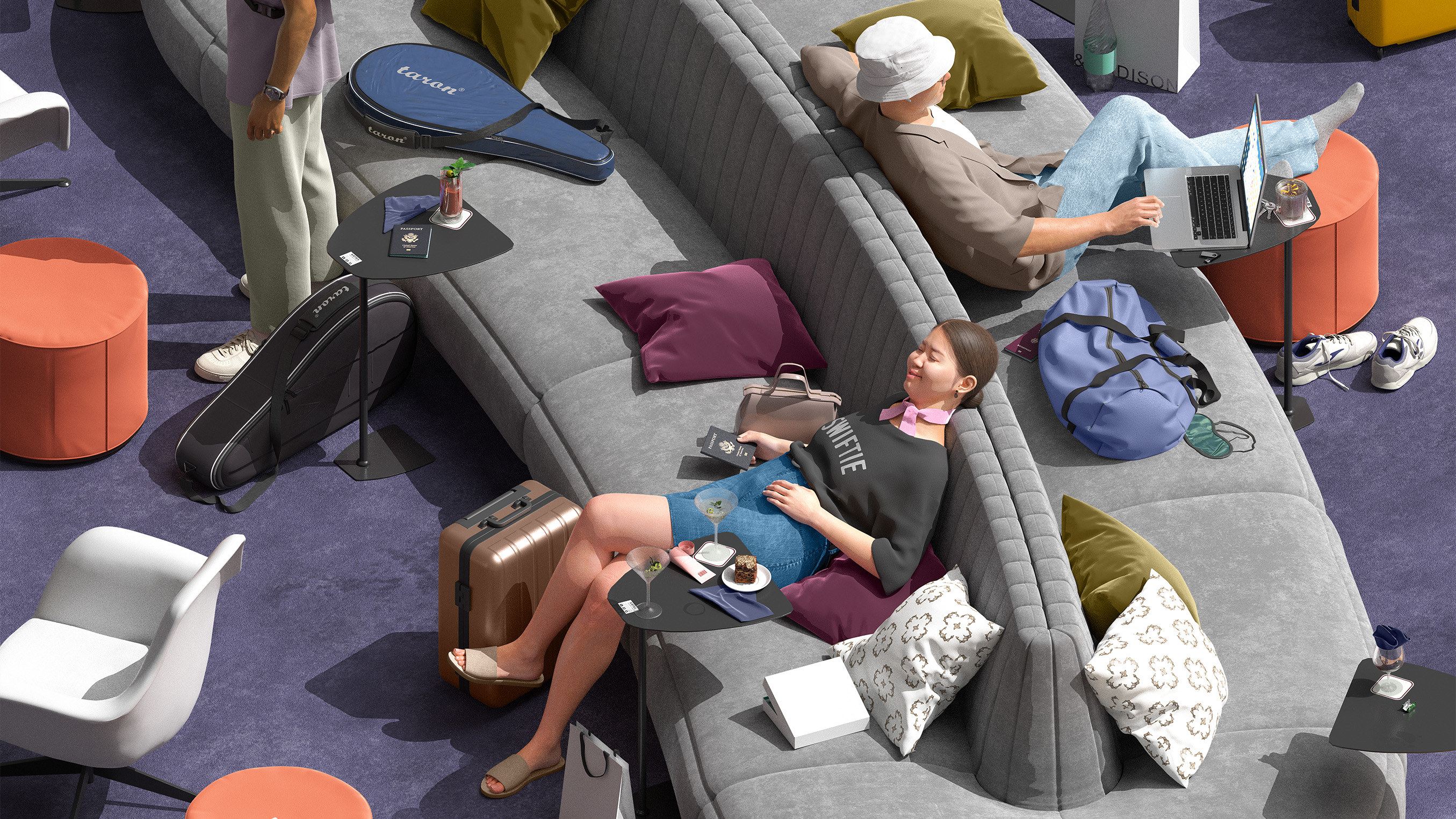Why the Internet Is Boring Now
6 min read
This is an edition of The Atlantic Daily, a newsletter that guides you through the biggest stories of the day, helps you discover new ideas, and recommends the best in culture. Sign up for it here.
Ian Bogost has lived through more than a few hype cycles on the internet. The Atlantic contributing writer has been online, and building websites, since the early days of the World Wide Web. I spoke with him about what happens when new technologies age into the mainstream, how the web has in some ways been a victim of its own success, and the parts of the internet that still delight him.
First, here are three new stories from The Atlantic:
- The spat that made Congress even worse
- The “America First” chaos caucus is forcing a moment of truth.
- Your childhood home might never stop haunting you.
The Web Is Fine
Lora Kelley: Is it fair to say everything online is deteriorating? Or is that too dramatic?
Ian Bogost: It’s easy to focus on the stuff that seems bad or broken, because it is noticeable and also because the internet is built for complaining about things. And it’s natural that one of the things we like to complain about the most on the internet is the internet itself. But there’s a lot of stuff online that’s really amazing, and we should be careful to keep that in mind.
The things that feel like deterioration are the result of a saturated market. There’s no longer any incentive for tech products to be as good for consumers as they once were. That’s in part a cost issue—a lot of tech was effectively subsidized for years. But also, the delightful or even just straightforwardly functional services created years ago don’t have to be quite so friendly and usable. Because of their success, there’s not as much of a need to satisfy people anymore.
These products are now like a lot of other things in our offline lives—fine. When you go to buy a car or a mattress or whatever, it’s just kind of the way it is. We’ve reached that level of cultural ubiquity with computers.
Lora: Is it inevitable that products will become boring once they become the mainstream? Is there any way around that, or are we stuck in a cycle of novelty to boredom?
Ian: That’s the cycle, and it’s good. Boredom means that something is successful. When things are new, they feel wild and exciting. We don’t know what they mean yet, and there’s a lot of promise—maybe even fear.
But for something to truly become successful at a massive scale—for millions or billions of people to develop a relationship with a product or service—the product has to recede into the background again and become ordinary. And once it reaches that point, you stop thinking about it quite so much. You take it for granted.
Lora: You have written about your experience using, and building websites on, the internet in the ’90s. What parallels do you see between the early web and this current moment of generative AI?
Ian: I remember living through the early days of the web, and we never had any idea that millions and billions of people would be using these data-extraction services. None of that occurred to us at the time. I don’t think there’s a very strong cultural memory of the early days of the web. We have a lot of stories about the excesses of the dot-com era, but the more ordinary stuff didn’t get recorded in the same way.
Everything that we did, we had to convince some old-world business that it was worth doing. It was a process of bringing the offline world online. In the decades since, technologists have started disrupting the legacy businesses and sectors through innovation. And that worked really well from the perspective of building markets and building wealth. But it didn’t necessarily make the world better.
Generative AI feels more like those early days of the web than social media or the Web 2.0 era did. It’s my hope that maybe we’ll go about this in a way that draws from the lessons learned over the past 30 years—which, of course, we probably won’t. Technologists shouldn’t be trying to blow things up; rather, they should make use of what technology allows in order to do things better, more equitably, and more effectively.
Lora: In 2024, do you still find the web to be a site of wonder?
Ian: Being able to talk to family and friends as much as I want, for free, is still historically unusual and delightful. The fundamental feature of the internet still exists: I can look out and get a little buzz of delight just from seeing something new.
Related:
- The web became a strip mall.
- Social media is not what killed the web.
Today’s News
- A New York Times report found that an upside-down flag, a “Stop the Steal” symbol, flew at Supreme Court Justice Samuel Alito’s house in January 2021, when the Supreme Court was considering whether to hear a 2020 election case.
- The man who bludgeoned Nancy Pelosi’s husband in 2022 was sentenced to 30 years in federal prison. He is awaiting a state trial later this month.
- Daniel Perry, a former Army sergeant who was convicted of murdering a Black Lives Matter protester in 2020, was released from prison yesterday after Texas Governor Greg Abbott granted him a pardon.
Dispatches
- The Books Briefing: Alice Munro’s death was an occasion to praise her life as a writer as much as her actual work, Gal Beckerman writes.
Explore all of our newsletters here.
Evening Read

The One Place in Airports People Actually Want to Be
By Amanda Mull
On a bright, chilly Thursday in February, most of the people inside the Chase Sapphire Lounge at LaGuardia Airport appeared to be doing something largely absent from modern air travel: They were having fun. I arrived at Terminal B before 9:30 a.m., but the lounge had already been in full swing for hours. Most of the velvet-upholstered stools surrounding the circular, marble-topped bar were filled. Travelers who looked like they were heading to couples’ getaways or girls’ weekends clustered in twos or threes, waiting for their mimosas or Bloody Marys …
While I ate my breakfast—a brussels-sprout-and-potato hash with bacon and a poached egg ordered using a QR code, which also offered me the opportunity to book a gratis half-hour mini-facial in the lounge’s wellness area—I listened to the 30-somethings at the next table marveling about how nice this whole thing was. That’s not a sentiment you’d necessarily expect to hear about the contrived luxury of an airport lounge.
Read the full article.
More From The Atlantic
- Graeme Wood: The UN’s Gaza statistics make no sense.
- Many Indians don’t trust their elections anymore.
- Giant heaps of plastic are helping vegetables grow.
Culture Break

RIP. The dream of streaming is dead, Jacob Stern writes. The bundles are back.
Pick apart. The sad desk salad, a meal that is synonymous with young, overworked white-collar professionals, is getting sadder, Yasmin Tayag writes.
Play our daily crossword.
Stephanie Bai contributed to this newsletter.
When you buy a book using a link in this newsletter, we receive a commission. Thank you for supporting The Atlantic.



